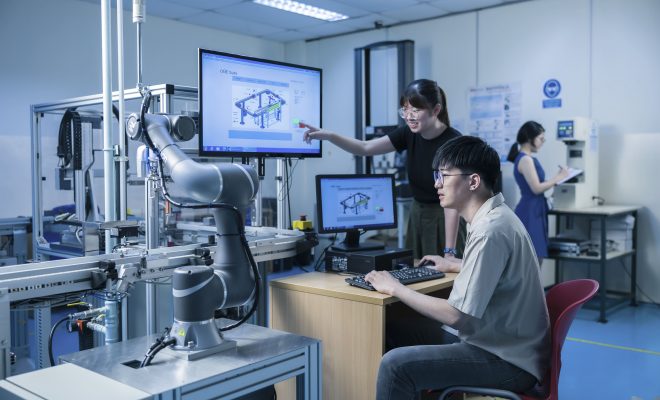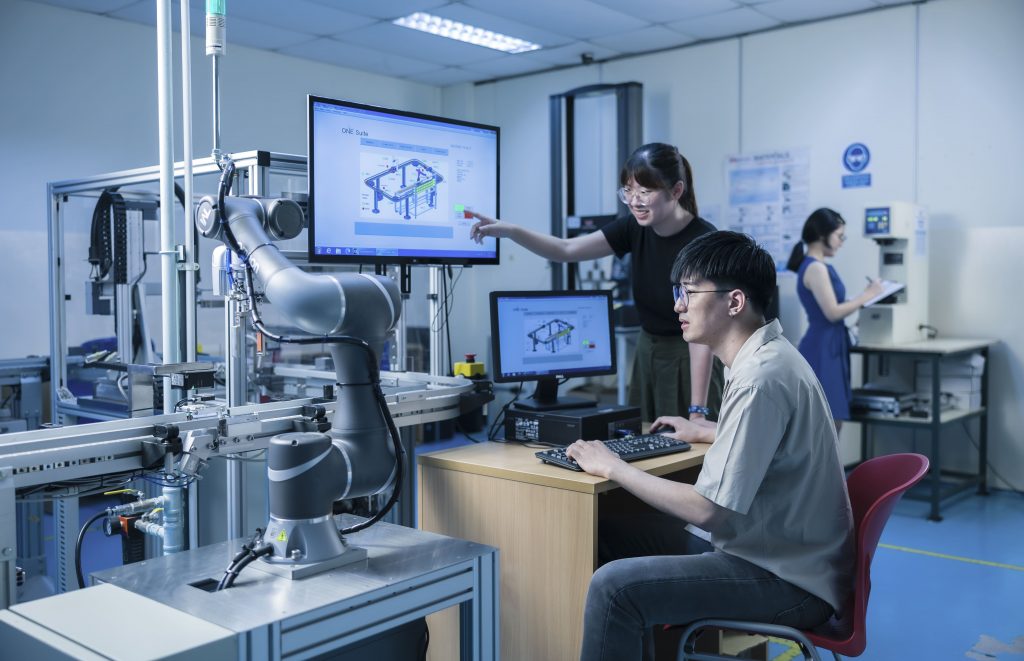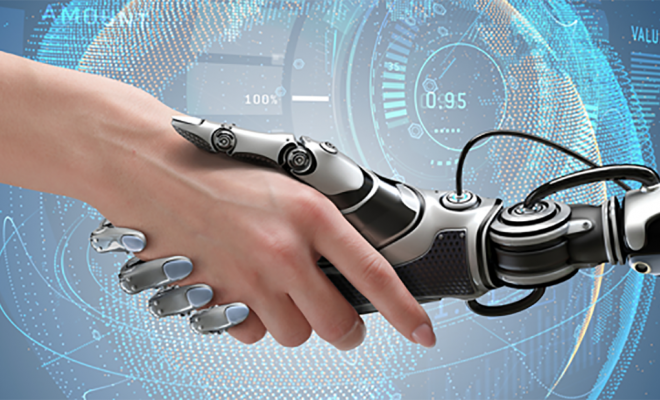How has Engineering Evolved to Tackle Sustainability Issues?


Engineers are known for making magic happen. Leveraging innovation, creativity and knowledge earned through training and practice, engineers are impacting the world, one innovation at a time. As the world evolves to meet the Paris Climate Goals, engineers are at the forefront of the paradigm shift towards a clean, green tomorrow.
Exploring the Influence of Engineering on Our World
Engineering as a profession, has a profound impact on how the world functions and operates. With a world that is always coming up with bigger or better ideas, the primary goal of an engineer, is to take an idea and improve on it to create a positive impact in improving peoples’ lives.
For those considering a path in engineering, understanding its multifaceted impact on society is key. Engineering shapes our world, fueling environmental sustainability, innovation and development from smartphones’ intricate design to the grandeur of skyscrapers. Let’s delve into how engineering shapes the present and charts the course for the future.
Crafting Our Urban Landscape
Infrastructure development is one of engineering’s most obvious social effects. Cities and countries have seen dramatic changes, thanks to a large part to civil engineering. Buildings, highways, tunnels and bridges not only improve connectivity, but also raise living standards in general. Through careful planning and design, engineers produce buildings that serve as symbols of technological innovations and advancements.
For instance, consider the technical marvel that is the world’s tallest structure, the Burj Khalifa in Dubai. Cutting-edge engineering methods, materials and creative designs were initiated in managing the challenges presented by its enormous construction. Such initiatives provide solutions to urban problems, revitalise city skylines and bolster economic progress.

Transforming Transportation
According to the International Energy Agency, global electric car sales surpassed 3 million in 2021, signifying a significant shift towards sustainable transportation. Engineers’ innovations have propelled advancements in electric vehicles, with projections indicating a considerable reduction in greenhouse gas emissions by 2030. Autonomous vehicles, a project of interdisciplinary engineering, are estimated to reduce traffic fatalities by up to 90%, transforming the future of transportation.
Engineering for Healthcare and Well-being
A biomedical engineering degree bridges the gap between engineering and medical sciences to usher in an exciting era of healthcare. Engineers make significant contributions towards improving healthcare outcomes and quality of life from prostheses to diagnostic devices.
Engineering breakthroughs are the reasons why medical imaging technologies like computerised tomography (CT) and magnetic resonance imaging (MRI) scans, wearable health gadgets, robotic-assisted surgery procedures and even 3D printing customised implants for healthcare innovations are readily available. With lots of wearable health gadgets like fitness trackers and wearable devices, engineering innovation continues to reshape the healthcare sector.
Pioneering Communication and Information Technologies
The rise of the internet and connected devices has been staggering. Statista reports that by 2023, there will be an estimated 30.9 billion connected devices globally, highlighting the indispensability of these technologies. Engineers continually drive innovation in these fields, with investments in 5G technology projected to reach $8.3 billion by 2025, remodelling communication networks entirely.

Championing Renewable Energy
Renewable energy produced from existing resources that naturally sustain or replenish over time, not only addresses climate concerns, but it can also alter the global energy landscape.
The global trend towards renewable energy sources exhibit the effectiveness of engineering in addressing environmental concerns. Engineers working in the electrical and environmental fields deliver solutions for harnessing renewable energy sources such as wind, solar and hydropower.
The implementation of solar panels and wind turbine designs have made significant strides toward providing clean energy alternatives. Engineers work tirelessly to enhance these technologies and make them more attainable and scalable for widespread adoption.
Preserving Our Environment
Environmental engineering is also critical in mitigating the effects of human activity on the environment. Engineers are on the cutting edge of developing technologies and strategies to combat pollution, manage waste and protect natural resources. Environmental engineering produces water treatment plants, waste management systems and air pollution control technologies. Engineers collaborate to develop sustainable solutions that balance human development with environmental preservation, ensuring a harmonious coexistence with nature.
Engineering Empowerment and Education
Engineering not only changes physical landscapes, but it also educates and empowers individuals. Pursuing an engineering education provides individuals with problem-solving abilities, analytical skills and the ability to make a meaningful contribution to society.
Societies ensure a continuous cycle of progress and adaptation to emerging challenges by nurturing the next generation of engineers. STEM (science, technology, engineering, and mathematics) education initiatives seek to bridge knowledge gaps and empower diverse communities to participate in the technological evolution.

In Conclusion: Forging a Sustainable Future
In contemplating the vast canvas of opportunities that engineering paints across every facet of the world, the call to aspiring minds beckons louder than ever. The canvas isn’t just painted; it’s reimagined, reshaped, and redesigned every day by engineers. The allure of this field lies not just in its ability to build marvels that defy imagination or solve complex problems, but in its innate power to transform lives.
Joining the league of engineers is not just a choice; it’s a catalyst for change. It’s an invitation to shape the world today and build a brighter and sustainable tomorrow. So, as you navigate through the maze of educational opportunities, ponder the realm of engineering and the boundless possibilities it offers. Embrace the challenge, the creativity, and the sense of purpose it entails. Step into the world of engineering, where innovation knows no bounds and your impact knows no limits.
Founded in 1956, MDIS is one of Singapore’s oldest not-for-profit professional institutes for lifelong learning that offers a range of engineering programmes for individuals from all walks of life. To find out more about our engineering courses, visit our webpage or get in touch with our friendly and experienced educational consultants for a discussion at 6278 8000!
Sources:
https://www.khaleejtimes.com/uae/5-challenges-faced-while-building-dubais-burj-khalifa
https://www.iea.org/reports/global-ev-outlook-2021
https://www.statista.com/statistics/1101442/iot-number-of-connected-devices-worldwide










